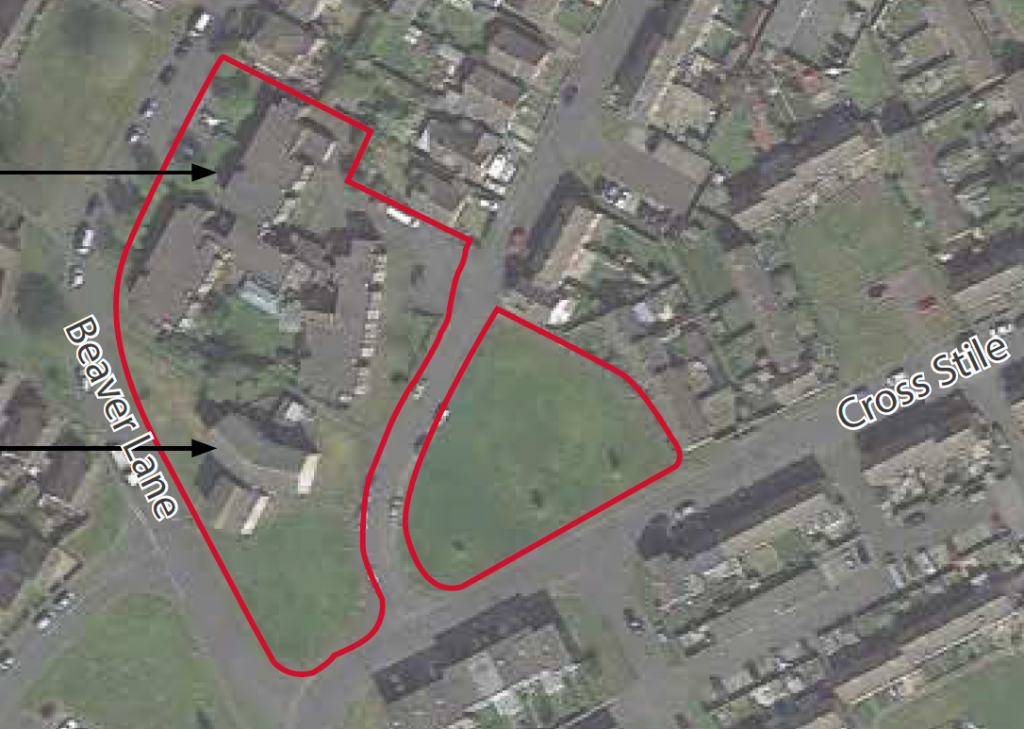Oakleigh House redevelopment: online meeting

We are holding an online meeting about the redevelopment of Oakleigh House
- at: 7.00 pm
- on: 11th August 2020
- by Zoom
To join the meeting please complete our Registration Form


We are holding an online meeting about the redevelopment of Oakleigh House
To join the meeting please complete our Registration Form
Ashford Borough Council is consulting on proposals to redevelop Oakleigh House sheltered housing in Beaver Lane. The propsals include the demolition of the adjacent block of flats and development of the grass area between Watercress Lane and Cross Stile.


As lockdown restrictions continue to ease and more people are travelling Stagecoach have reviewed their seating guidance so they can safely carry more passengers.
There will be posters and signage onboard the bus to help you find where to sit. Once on board you’ll be able to sit:
See below example plans so that you can see the zig zag seating arrangement:


We know you’ve got lots of questions so we’ve put together some answers relating to this new process when travelling on our services.
Q Why is it safe now to sit so close to others on the bus?
A With the virus now more controlled, the alert level has been reduced and there has been a relaxation of social distancing measures across other sectors in England. Now that everyone who can is wearing a face covering on board it was time for us to make a few changes. Along with other public transport operators, we’ve done a risk assessment which means one person can now sit on each double seat, in a zig-zag formation. This will allow more people to safely travel on our services.
Q I haven’t seen this in the Government guidelines, is this allowed?
A In line with the reduced risk level, the Government has relaxed social distancing measures across a wide range of sectors and worked with individual sectors to apply the new measures to that industry. We’ve consulted with government and The Confederation of Passenger Transport UK (CPT) that this change in social distancing on board public transport is allowed and is necessary to help get the country moving again.
Q What if the person in front of or behind me isn’t wearing a face covering?
A There will be people who aren’t wearing face coverings because they’re exempt for various reasons so please remember to be kind. If you feel uncomfortable sitting in front of or behind them, choose a seat further away or across the aisle.
10-steps to staying safe when you travel:


1. Plan ahead, allow extra time for your journey and try to travel at off-peak times, where possible.


2. Wear a face covering.


3. Use contactless, smartphone, smartcard, or have the exact change.


4. Buses will have limited capacity. If your bus has a BUS FULL sign please be prepared to wait for the next bus.


5. Let people off the bus before you get on. Be considerate of the impact of restrictions on the needs of fellow passengers who may have impairments, disabilities or mobility issues.

6. Keep a safe social distance from others, at the bus stop and on board.


7. Only one person can sit on a double seat, unless you’re with a member of your household or bubble.


8. Leave the seat next to you or behind someone empty.


9. Don’t stand on the bus.


10. Wash or sanitise your hands before and after your journey.
 |
Stagecoach are increasing more of their services in the South East from Monday 29th June 2020
Stagecoach thanks all of their customers who have given valuable feedback in recent weeks.
They have listened to this and made changes where they can to bring services back to the communities of Kent and East Sussex.
The services changing on the 29th June 2020 include:
Please note that timetables are being updated more frequently than usual at this time, so please check the latest temporary timetables below before you travel:
As more people return to work, to help keep everyone safe the number of seats available on buses has been reduced to promote social distancing.
Please plan ahead and avoid the busiest times of day if you can and see below our 10-steps to travelling safely at this time.
Yesterday evening (17 June 2020), Ashford Borough Council’s Planning Committee deferred a decision on the proposal by A Better Choice for Property for the redevelopment of the Homeplus site on the corner of Beaver Road and Avenue Jacques Faucheux. The reasons sited were quality of design and massing of the proposals. The vote to defer was taken after a motion to Refuse the application failed. A motion to Permit was not seconded.
The meeting papers and a link to view the recording of the meeting are at:
https://ashford.moderngov.co.uk/ieListDocuments.aspx?CId=139&MId=3821
The application is at:
https://planning.ashford.gov.uk/Planning/details.aspx?systemkey=113996

The redevelopment of the Homeplus site will be considered by the Planning Committee at a meeting to be held at 5pm on 17th June.
Agenda and link to online meeting: https://ashford.moderngov.co.uk/ieListDocuments.aspx?CId=139&MId=3821
Planning application:
https://planning.ashford.gov.uk/Planning/details.aspx?systemkey=113996
NHS Test and Trace service is now in operation.
You may be contacted by the Service if:
▪️You have tested positive for Coronavirus or
▪️You have been in contact with a person who has tested positive for Coronavirus.
For accurate detailed information about the service go to
https://www.nhs.uk/…/coronavirus-c…/testing-for-coronavirus/
The NHS Test and Trace service will contact you by email, text or phone.
Text messages will come from the NHS. Calls will come from 0300 0135000.
Children under 18 will be contacted by phone wherever possible and asked for their parent or guardian’s permission to continue the call.
If you have tested positive for Coronavirus:
You’ll be asked to sign in to the NHS Test and Trace contact tracing website at https://contact-tracing.phe.gov.uk.
On the contact tracing website, you’ll be asked for information including:
▪️your name, date of birth and postcode
▪️if you live with other people
▪️any places you’ve been recently, such as a workplace or school
▪️names and contact details of any people you were in close contact with in the 48 hours before your symptoms started (if you know these details)
If you cannot use the contact tracing website, you’ll be asked for this information over the phone.
The NHS Test and Trace service will not:
▪️ask for bank details or payments
▪️ask for details of any other accounts, such as social media
▪️ask you to set up a password or PIN number over the phone
▪️ask you to call a premium rate number, such as those starting 09 or 087
Do not click links in texts or emails
Do not press 1 if you are telephoned
 |
From Monday 1st June there’ll be a phased uplift in bus services. At first this will be on some of the busier routes in Kent, but as government lock-down restrictions ease, you will begin to see more buses return to service in other parts of the South East.
The services changing on the 1st June 2020 include:
Ashford routes; 1/1A, 2A, 10X, 11, 111, 123 & 666
Thanet routes; 8/8X, 48, 48A, Loop
Dover routes; 61 (evenings), 90 & 15
Please note that timetables are being updated more frequently than usual at this time, so please check our latest temporary timetables below before you travel:
10-steps to staying safe when you travel:
As more people return to work, to help keep everyone safe we have reduced the number of seats available on our buses to promote social distancing. Please plan ahead and avoid the busiest times of day if you can and see below our 10-steps to travelling safely at this time.
Stagecoach UK Bus 30 May 2020
https://www.stagecoachbus.com/promos-and-offers/south-east/government-coronavirus-measures–changes-to-bus-services
https://www.stagecoachbus.com/promos-and-offers/national/covid-19-travelling-safely
 |
To serve key workers who need to travel on May Bank Holiday (Monday 25th May), Stagecoach will be running their current Monday to Saturday service on most routes.
There are a few routes that will not operate on Monday 25th May:
Route 649 in Canterbury will not operate
Route 93 in the Dover area will not operate
Routes 312 and 313 to and from Rye will not operate
Routes 95, 96 and 97 in the Bexhill area will not operate
Route 5 in Seasalter will be operated by Regent, view Regent timetable
For more details of these and the current timetables in place across the South East, see below:

Today, a new system of consent for organ and tissue donation in England has gone live. Under the new system, known as ‘opt out’ or ‘deemed consent’, people over 18 years of age in England will now be considered to have agreed to donate their organs and tissue after death, except where they made a decision to opt out.
While the new system is now live, people will continue to be able to record their decision to opt out at any point and the simplest way to do so is on the NHS Organ Donation website.
It’s important that everyone takes the time to discuss their choices on donation with their families, whatever their preference may be. Get the facts about organ donation to help you decide
Children below 18 years, people who have been ordinary residents for less than 12 months in England and people who lacked capacity for a significant time, will be excluded.
Earlier in the year the Department of Health and Social Care announced a further safeguard, following our 12-week public consultation the previous year. This will ensure that the new system will only apply to routine transplants, to help those waiting for a life-saving or life-enhancing transplant.
Novel and rare transplants will be excluded from deemed consent when they become available in the UK.